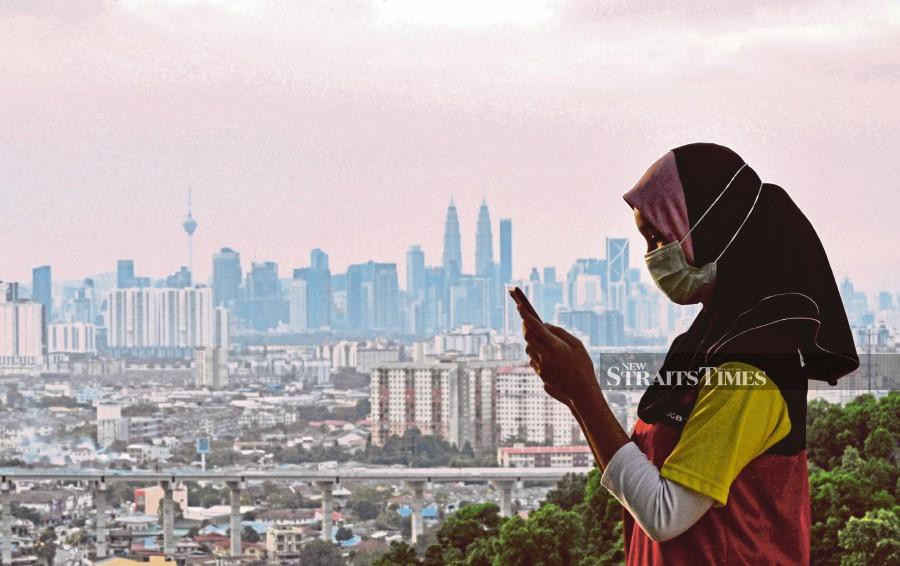LETTERS: We are living in a digital age. Globally close to 60 per cent of the world population are active Internet users and 93 per cent of them access the Internet via mobile devices.
When smartphones have become the ubiquitous feature in everyone's life, what does telecommunication mean for you?
For many, it's not merely saying "hello" over the phone. Video calls are no more a fad, but a necessity now. Social media has become an extension of one's self.
Hyper-connected 24-7 with two billion active users communicating on instant messaging platform WhatsApp, for instance, dissolves private and public spheres. Personal lives and working boundaries become blurred.
Do you know that on average we check our smartphones more than 200 times a day? Minus the live meetings via Zoom for work or online learning, this addictive screen time itself could amass up to three hours daily and that is 1,000 hours a year!
Due to the pandemic threat, making lockdowns, physical distancing and self-isolation inevitable, telecommunications technology has allowed us to connect with whoever, wherever and whenever in possibly the safest way. It keeps us together. Connecting has never been easier.
However, strangely, it has also made us lonelier. It is indeed lonesome when we are left all alone in deciphering facts, facing truths and making choices.
When one is overloaded with opinion-cum-information, it may cause cognitive dissonance leading to mental strain and stress. Being too consumed on Internet content may also trigger fear.
We become fearful of missing out, of what we can't control and never being happy or good enough. Information is power, but it can also throw us into the abyss of emptiness, powerlessness and loneliness.
By just having a smartphone with us, our behaviour and the way we interact with the world around us changes. It gets cut off and estranged.
In a recent study, University College London anthropologists concluded that smartphones are no longer just a device that we use, it has become the place where we live and this phenomenon is leading to the "death of proximity" when it comes to face-to-face interactions.
And what kind of "home" could that possibly be to us? A place monetised by tech-giants, populated by divisive "them or us" factions and run by algorithms in a mind-encroaching device that we keep in our pockets? Such is the price of the digital revolution. It changes life, but also rewires our brains.
There is without doubt loneliness in this era that has a personal, societal, economic, political and even pandemic dimension. It can be circumstantial or institutionalised, but now more than ever, when we scroll, we may be choosing to plug into digital loneliness.
So put down the smartphone, pause and reflect. Slow down. Talk to someone.
CHEAH C.F.
Ipoh, Perak
The views expressed in this article are the author's own and do not necessarily reflect those of the New Straits Times





